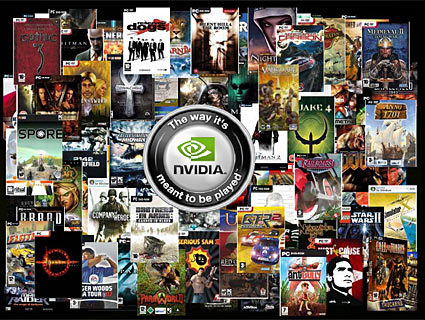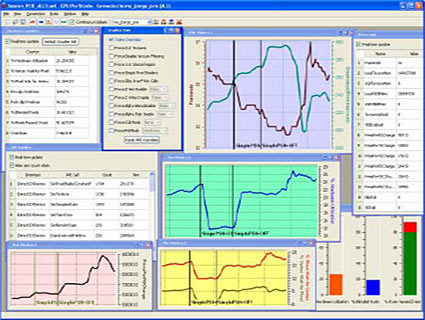Hardware Companies Outside The Box
Relationships, Relationships, Relationships!
Image Courtesy: Nvidia
The base of any relationship is a common interest. Game developers want to make games people want to play and get paid making them. Publishers want to make money selling games to consumers. Hardware manufacturers want to make cool technologies that people will buy. There are four parties to this "ecosystem": the gamer (you and me), the game developer (Valve, Id, 2K, and Crytek), the publisher (Ubisoft, Sierra, and EA), and the hardware maker (AMD and Nvidia). We make the whole system possible so we come first. If it weren't for the money we spend for entertainment, none of these companies would be in business. Game developers need investment capital to create games we want to play, and that takes time, talent and money. Publishers are the guys that help seed money to studios to make games, and in turn market, mass produce, and sell games to the market. Hardware makers are the folks we need to make these games show up in a way we can experience them.
While we focus primarily on the hardware companies, the other players are also important. Without any one of these four components you get nothing. For the hardware manufacturer, maintaining all of these relationships is important: if you alienate any segment then you are bound to fail. This goes for all three of the business segments. Mismanaging your alliances will come back to bite you. This can be seen in the recent BioShock digital rights management (DRM) debacle. If you pay too much attention to the publisher or your own pocket you can hurt the people who want to buy the game. No gamers = no profits, or at least less than expected earnings.
From the graphics makers' point of view, they want to sell graphics hardware. Let's face it: consoles currently have an advantage when it comes to cost. A television and a console can cost less than a well equipped PC. This is the same age old battle from Commodore 64 and PC vs. Atari, Intellivision, and Coleco. Aside from simplistically looking at costs, PC games generally are more diverse, have better image quality, have a wider feature set, and can be modified as technology expands. Amid the current "console tidal wave" that has hit the PC gaming market, PC gamers have been shown to be more loyal than their console relatives. PC gamers will generally own consoles while console owners may not game on a PC. So how do you get more people to game on a PC? The answer is simply, more of the above to give people a reason to play PC games. This is exactly the reason AMD and Nvidia instituted programs to improve the PC gaming experience.
AMD's GPU Perf Studio analysis toolImage Courtesy: AMD
Get Tom's Hardware's best news and in-depth reviews, straight to your inbox.
Current page: Relationships, Relationships, Relationships!
Prev Page Outside The Silicon Next Page Relationships, Continued
